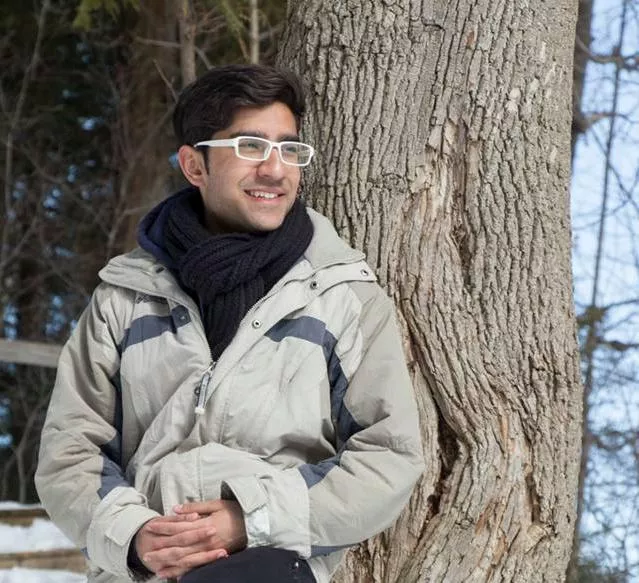
UTM student wins Lieutenant Governor’s Award for environmental activism
A University of Toronto Mississauga student who is a passionate environmental advocate has been acknowledged with a Lieutenant Governor’s Ontario Heritage Award.
Muhammad Qureshi, a fourth-year chemistry and environmental science student, founded EnviroHub, a group of environmental or eco-minded clubs at UTM working to make campus events more sustainable. He is also an active member of Ontario Nature Youth Council, a network of Ontario high school students tackling a variety of environmental issues. Qureshi received a Youth Achievement Award in the individual category for environmental activism.
“Receiving this award showed me that what I’ve been doing is the right thing, and it’s motivated me to continue doing what I’m doing,” says Qureshi, 22, who received the award directly from Lieutenant Governor Elizabeth Dowdeswell at a Feb. 27 ceremony at Queen’s Park.
Taking care of the earth became a priority for Qureshi while he was in high school. That’s when he started volunteering for the Peel Environmental Youth Alliance, a regional network of students focused on addressing threats to the environment. At the same time, he became involved with Ontario Nature, the well-established environmental group working to protect Ontario’s habitats and wildlife. In 2010, at age 17, he helped establish the organization’s Youth Council, which works to connect high school students in Ontario to problem-solve environmental issues.
Today, he mentors the approximately 40 students on the council, and helps organize its twice-yearly youth summits. He also helps carry out its conservation campaigns, the most recent of which took place last spring and involved raising awareness about the devastation to pollinators such as bees, butterflies and moths, which are critical to the food production process, but have had their numbers greatly decline due to habitat loss, pesticide exposure, climate change and disease. Qureshi and the council members delivered more than 1,200 signed postcards from youths across Ontario to Queen’s Park that asked Premier Kathleen Wynne to restrict the use of neonicotinoids, a harmful insecticide that severely affects bee populations. Months later, the Ontario government announced a comprehensive plan to protect pollinators that included substantially reducing the use of neonicotinoids.
“It was so inspiring to see youths so passionate about this issue, and to actually getting something done about it,” Qureshi says.
When he began at UTM in 2011, Qureshi wanted to continue making a difference on environmental matters, but the campus’s multiple environmental clubs made it difficult to decide where to focus his energy. He felt the clubs could be more effective if they cooperated with each other, so he approached them about uniting into a coalition.
The resulting group, EnviroHub, led to increases in membership and event attendance for the various clubs. Two years ago, Qureshi and other student leaders in the coalition staged a three-day conference at UTM in which students from 53 universities across Canada learned about the connection between sustainability and health, and gained tips for launching their own environmental initiatives.
“The back-and-forth sharing of ideas was a huge success. We were able to learn how to adopt eco-friendly projects in our own communities,” Qureshi says.
Today, EnviroHub primarily leads presentations to other campus groups about sustainable practices, and offers free reusable dishes, utensils and cups for campus events. It also recruits “green ambassadors”, volunteers who work with the campus’s Environmental Affairs Office to answer students’ questions about environmental programs and services at UTM, and help plan sustainability themed events.
After completing his undergraduate degree, Qureshi will begin a PhD in which he will focus on how solar energy could viably replace carbon-based fuel. Other environmental causes close to his heart are food and water security.
Says Qureshi: “I’m pretty optimistic we can develop better methods for renewable energy, better water filtration systems to get clean water anywhere in the world, and more sustainable practices in agriculture. We have the means to do it, but actually doing it is the biggest issue.”
